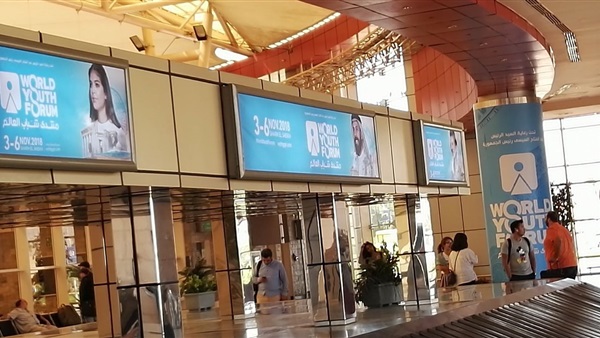Experiencing authoritarianism does not automatically make one a democrat. The Muslim Brotherhood has faced the worst kind of political repression over the past three decades yet the group still exhibits authoritarian tendencies. With the collapse of Hosni Mubarak’s regime, the Islamist group’s undemocratic face is being increasingly revealed.
Last week, dozens of young Brothers held their first public conference, calling for sweeping reforms within the organization. Inspired by the 25 January revolution, these young people are striving to transform the orthodox Muslim Brotherhood into a more democratic and transparent group. However, the movement’s leadership seems deaf to their demands.
At the conference, the youth declared their loyalty to the movement, as they usually do on such occasions, yet the event still managed to irk senior Brotherhood leaders. Their refusal to even engage with the conference reveals their deep sensitivity towards any internal criticism. Despite the fact that the conference’s recommendations on party-building were not novel, their symbolism might hurt the Brotherhood’s established orthodoxies.
The Muslim Brotherhood, the oldest and largest political movement in Egypt, still sticks to its traditional ideology, structure and strategies, which are ill-equipped to deal with the political changes brought about by the 25 January revolution. Living under three dictators — Nasser, Sadat, and Mubarak — has shaped the Brotherhood narrative. Over six decades, the Brotherhood has used its experience of political repression as a pretext to suppress any calls for internal change. The group sought to maintain its internal homogeneity at the expense of democratic structures and decision-making processes. Perhaps this explains why the Brotherhood, over generations, has not witnessed any real cleavages or splits.
The Brotherhood has tolerated internal opposition in a manner similar to the former ruling National Democratic Party: with arrogance, underestimation, and punitive measures meted out to dissidents. Members are not allowed to publicly criticize their leaders, ask for structural changes, or seek personal promotion. Not surprisingly, these three taboos have created a good deal of resentment and discontent among the group’s young members. Only time will tell what fate awaits those who organized the conference.
The top-down managerial structure of the Brotherhood has impeded any attempts to oppose or criticize the group’s decisions or policies. Low-ranking members cannot easily voice their demands or complaints to higher-ups without expecting adverse consequences, such as having their membership frozen. In the past, leading dissidents within the Brotherhood have either been marginalized or forced to leave the group all together. For example, Abulela Madi, Mokhtar Noah, and Tharwat al-Kharabawy all left the Brotherhood during the 1990s after opposing Mostafa Mashhour, the Brotherhood’s fifth Supreme Guide. More recently, soft opposition figures — like Abdelmoniem Abul Fotouh, Ibrahim el-Zafarni, Gamal Heshmat, and Khalid Daoud — have been sidelined because they dared to espouse different opinions.
Since its foundation in 1928, the Brotherhood has not made any major changes to its organizational structure. The group’s founder, Hassan al-Banna, established an organization with a well-defined hierarchy and loose internal regulations that grant senior leaders extensive powers without any real accountability. True, the Brotherhood has modified its internal rules three times over the past eight decades, but the changes introduced were by no means substantial.
For instance, according to the second article of the Brotherhood charter, the Supreme Guide holds two conflicting posts simultaneously: the head of the Guidance Bureau, the highest executive board consisting of 16 elected members, and the chairman of the Shura Council, which has 90 elected members and 10 appointees. Ironically, neither the Supreme Guide nor the Guidance Bureau members are accountable before the Shura Council, which elects them.
Furthermore, the process for recruiting and promoting members within the Brotherhood lacks transparency. As a Brotherhood member, you cannot seek an organizational promotion unless your records show complete obedience and loyalty to your leaders.
The young generation of Muslim Brotherhood is prepared to bring this authoritarian past to an end. Many feel that the group must change in the post-Mubarak era. The Muslim Brotherhood undoubtedly stands to gain a lot from Mubarak’s ouster, but the price for freedom and democracy may also be paid within the organization.
Khalil Al-Anani is a scholar at Middle East Institute at Durham University and expert on Islamist Politics. His latest book is The Muslim Brotherhood in Egypt: Gerontocracy Fighting against the Clock (Shorouk Press 2008).




